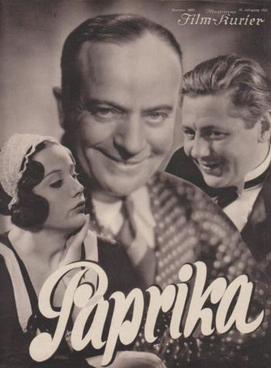
Paprika is a 1932 German comedy film directed by Carl Boese and starring Franciska Gaal, Paul Hörbiger and Paul Heidemann. Made by the German branch of Universal Pictures, it was based on a hit play by Max Reimann and Otto Schwartz. A French-language version and an Italian-language version were released the following year. It is also known by the alternative title of Marriage in Haste. In the US, the film was released almost 2 years later in German on 18 May 1934 in the Yorkville theater under the title Wie man Maenner fesselt (How to charm men).

The Happy Wanderer is a 1955 West German romantic comedy film directed by Hans Quest. It stars Rudolf Schock, Waltraut Haas, Elma Karlowa, and Willy Fritsch. It was shot in Agfacolor at the Tempelhof Studios in West Berlin and on location in Bavaria. The film's sets were designed by the art director Hans Kuhnert.

Operetta is a 1940 German musical film directed by Willi Forst and starring Forst, Maria Holst and Dora Komar. The film was made by Wien-Film, a Vienna-based company set up after Austria had been incorporated into Greater Germany following the 1938 Anschluss. It is the first film in director Willi Forst's "Viennese Trilogy" followed by Vienna Blood (1942) and Viennese Girls (1945). The film portrays the life of Franz Jauner (1832–1900), a leading musical figure in the city. It is both an operetta film and a Wiener Film.

Crown Prince Rudolph's Last Love is a 1955 Austrian historical drama film directed by Rudolf Jugert and starring Rudolf Prack, Christiane Hörbiger and Winnie Markus. The film portrays the tragic 1889 Mayerling Incident, in which Rudolf, Crown Prince of Austria and his lover Baroness Mary Vetsera committed suicide.

Spring Parade is a 1934 comedy film directed by Géza von Bolváry and starring Paul Hörbiger, Franciska Gaal, and Wolf Albach-Retty.
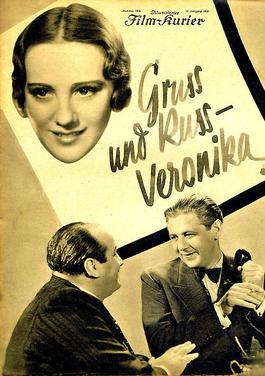
Greetings and Kisses, Veronika is a 1933 German comedy film directed by Carl Boese and starring Franciska Gaal, Paul Hörbiger, and Otto Wallburg. It was shot at the Johannisthal Studios in Berlin. The film's art direction was by Kurt Dürnhöfer and Max Heilbronner. The film's popularity made Gaal an international star. However the rise of the Nazi Party to power meant that the Jewish Gaal had to make her next films in Hungary and Austria.

Paul and Pauline is a 1936 German comedy film directed by Heinz Paul and starring Ludwig Manfred Lommel, Trude Hesterberg and Erika Helmke. It was shot at the Terra Studios in Marienfelde in Berlin.

My Heart Calls You is a 1934 German musical film directed by Carmine Gallone and starring Jan Kiepura, Mártha Eggerth and Paul Kemp. Separate English-language and French-language versions were made, both also directed by Gallone.
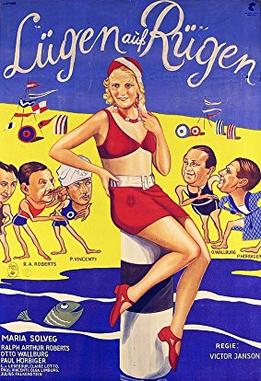
Distorting at the Resort is a 1932 German comedy film directed by Victor Janson and starring Maria Matray, Paul Hörbiger, and Otto Wallburg. It was shot at the Tempelhof Studios in Berlin. The film's sets were designed by the art director Jacek Rotmil.

Miss Madame is a 1934 German comedy film directed by Carl Boese and starring Jenny Jugo, Paul Hörbiger, and Olga Limburg. The film's sets were designed by the art director Erich Czerwonski. It was based on play of the same title by Ludwig Fulda.
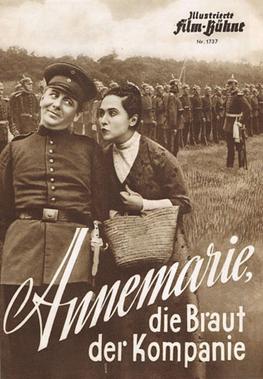
Annemarie, the Bride of the Company is a 1932 German comedy film directed by Carl Boese and starring Lucie Englisch, Paul Heidemann and Albert Paulig. It was shot at the Babelsberg Studios in Berlin. The film's sets were designed by the art director Willi Herrmann.

No Day Without You is a 1933 German comedy film directed by Hans Behrendt and starring Lee Parry, Oskar Karlweis, and Paul Hörbiger. It was shot at the Johannisthal Studios in Berlin.

The Emperor's Waltz is a 1933 German musical film directed by Frederic Zelnik and starring Mártha Eggerth, Paul Hörbiger, and Carl Esmond. It was shot at the Tempelhof Studios in Berlin with sets designed by the art director Franz Schroedter. Location shooting took place around the Austrian spa town Bad Ischl.

Romance is a 1936 Austrian drama film directed by Herbert Selpin and starring Christl Mardayn, Carl Esmond and Trude Marlen.

Call of the Forest is a 1965 Austrian drama film directed by Franz Antel and starring Hans-Jürgen Bäumler, Terence Hill and Gerhard Riedmann. It is part of the popular tradition of heimatfilm.

The Mad Aunts Strike Out is a 1971 West German comedy film directed by Franz Josef Gottlieb and starring Rudi Carrell, Ilja Richter, and Mascha Gonska. It is part of a series of cross-dressing comedies inspired by Charley's Aunt and Some Like It Hot.

Hello Taxi is a 1958 Austrian comedy film directed by Hermann Kugelstadt and starring Hans Moser, Paul Hörbiger and Oskar Sima.
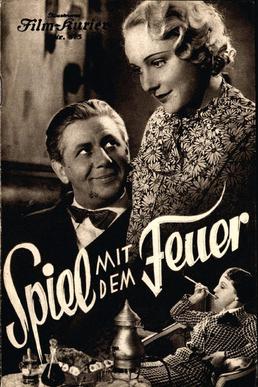
Playing with Fire is a 1934 German comedy film directed by Ralph Arthur Roberts and starring Paul Hörbiger, Trude Marlen and Elga Brink.

My Heart Longs for Love is a 1931 German musical romance film directed by Eugen Thiele and starring Trude Berliner, Max Adalbert and Johannes Riemann. The film's sets were designed by the art directors Botho Hoefer and Bernhard Schwidewski.
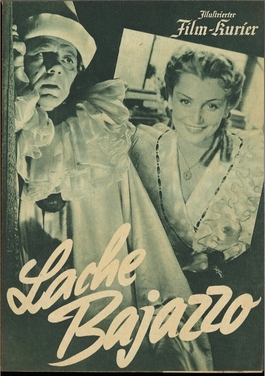
Laugh, Bajazzo is a 1943 German drama film directed by Leopold Hainisch and starring Paul Hörbiger, Claude Farell and Dagny Servaes. A separate Italian-language version Laugh, Pagliacci was also produced. The film's sets were designed by the art director Franz Koehn and Hans Kuhnert.




















